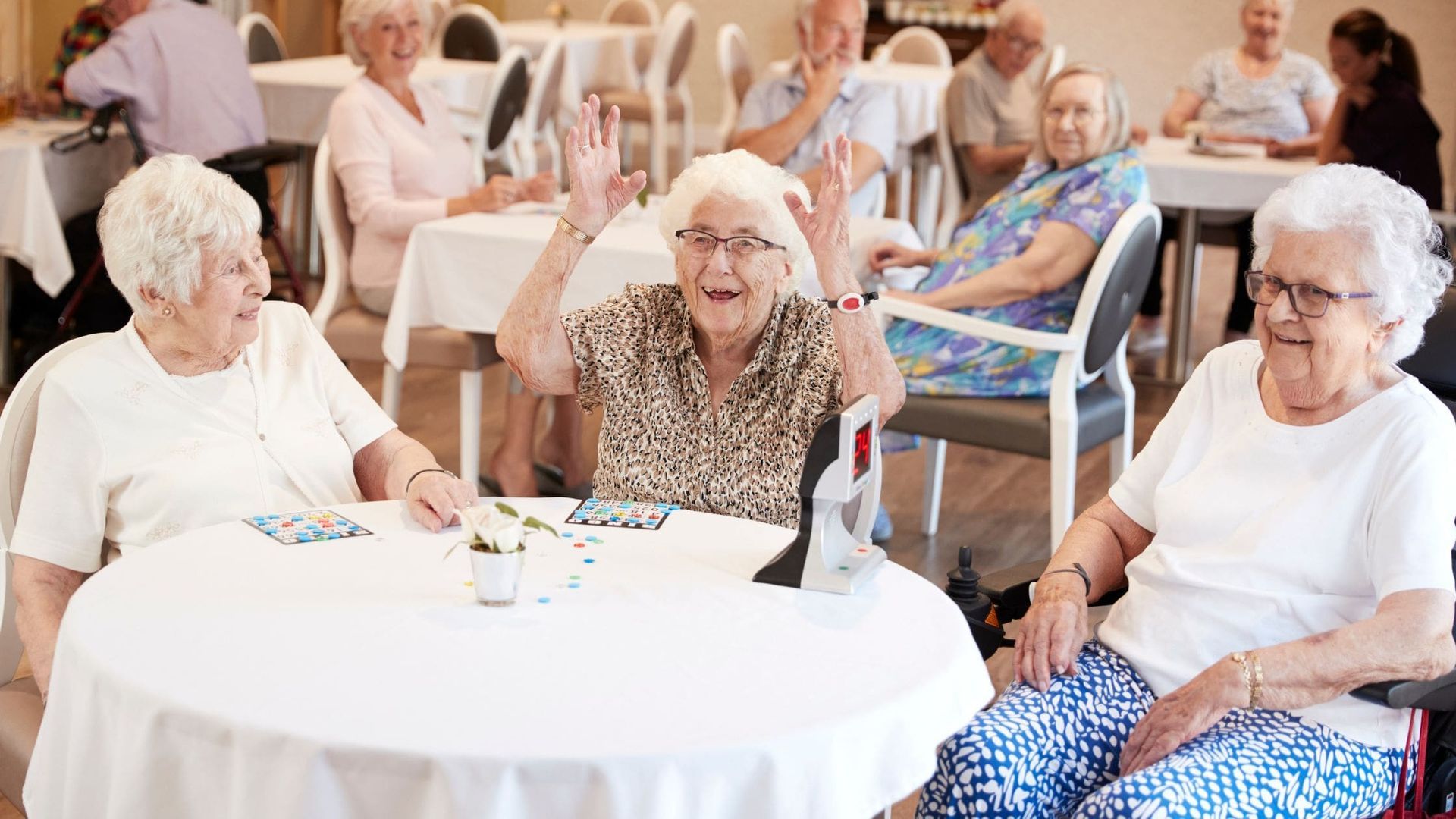Communication and Dementia: Defusing Anger, Avoiding Arguments
Communication and Dementia: Defusing Anger, Avoiding Arguments
Communication and dementia can seem like an impossible pairing. We’ll share 3 strategies for overcoming the challenge and creating a more supportive experience for both of you.
Taking care of a loved one with dementia can be tough on both of you. It's normal to get frustrated when communicating, but it's important to remember they feel it too. Your loved one is likely aware something isn’t quite right, and that disorientation and diminished control can be simultaneously frightening and irritating.
When humans are thrown off balance that way, our bodies shift into survival mode: we freeze, flee, or fight! And when you’re feeling frustrated by them, it can create similar responses in your body. Before you know it, you’re both in a seriously negative confrontation!
The best thing you can do is focus on creating a little space for you both. Take a breath, step away for a moment if you can, and consider what can help restore a sense of control and stability.
Here are 3 strategies, using sample scenarios, for helping support and communicate with those suffering from various stages of dementia, particularly when tensions rise and arguments brew.
VALIDATION
Let’s use Maria as an example. Maria insists she lost a necklace and is becoming agitated, raising her voice and accusing her sister, Dorothy, of taking it. Dorothy knows the necklace was lost over a decade ago. Rather than trying to reason with Maria and remind her of when it was lost, Dorothy decides to validate her feelings. "I'm so sorry you lost your necklace. Let's look for it together," she says.
By involving Maria in the search and offering encouragement, Dorothy helps ease her agitation and gives her a sense of purpose. It’s likely her attention will shift away more readily as the stress dissipates.
Another common scenario would be Maria talking about a fond memory, only she is mixing up names and getting details wrong. In the past Dorothy would attempt to correct Maria and insist upon the factual details. This would lead to confusion, sadness, and sometimes anger leaving them both frustrated and exhausted.
Now, Dorothy takes a different approach. Instead of correcting Maria, she listens actively, encourages her to continue the story, and nods in agreement. Their interactions are more positive and enjoyable for both of them.
How REDIRECTION helps align communication and dementia
William led a very active lifestyle and though he is older now, he is still quite strong. When William becomes upset he can often turn physical and may lash out at the people around him.
People who were active before their disease usually still respond well to activity. If William’s son Sam notices his father is heading towards a combative episode he tries to redirect William’s energy towards something else.
This may be encouraging him to go for a walk, suggesting an engaging activity like a jigsaw puzzle or hobby, even providingfidget toys like a str ess ball can help. Sam recognizes that with William’s active background he remains much calmer when he gets to expend energy throughout the day.
The outdoors are a wonderful way to redirect energy and shift moods. Being in nature has been proven to reduce stress for everyone, including you! Taking your loved one for walks, an afternoon at the beach, to a park for people watching or feeding the ducks, practicing physical therapy or tai chi in the sunshine and breeze can help calm the mind and encourage a good night’s sleep.
IMAGINATION
Susan noticed that her best friend Connie’s temper has become very short since her disease progressed. Her once calm and joyful friend can quickly become irritable and snap at Susan. Not to be discouraged, Susan brought a coloring book one day; Connie’s temper rapidly melted away as she filled in the pictures.
Crafts and imaginative activities are hugely beneficial for dementia patients. Creative tasks challenge the brain and usually the hands as well, keeping them nimble. Music can also cause a positive shift in mood so listening to music along with singing and dancing are great for Connie, too.
It’s difficult to imagine the experience of living with dementia, but recognizing that whatever your loved one is thinking and feeling may trigger survival behaviors can be helpful. Also remember that they may be reacting to the feeling – the overall experience – they’re having, not necessarily to you personally!
Take the lead in helping them to feel on firm ground again, and you’ll find communication and dementia aren’t necessarily mutually exclusive. If you’re in the Raleigh NC area, and would like to learn about getting help caring for your loved one with dementia, please contact us; we’re happy to talk.










